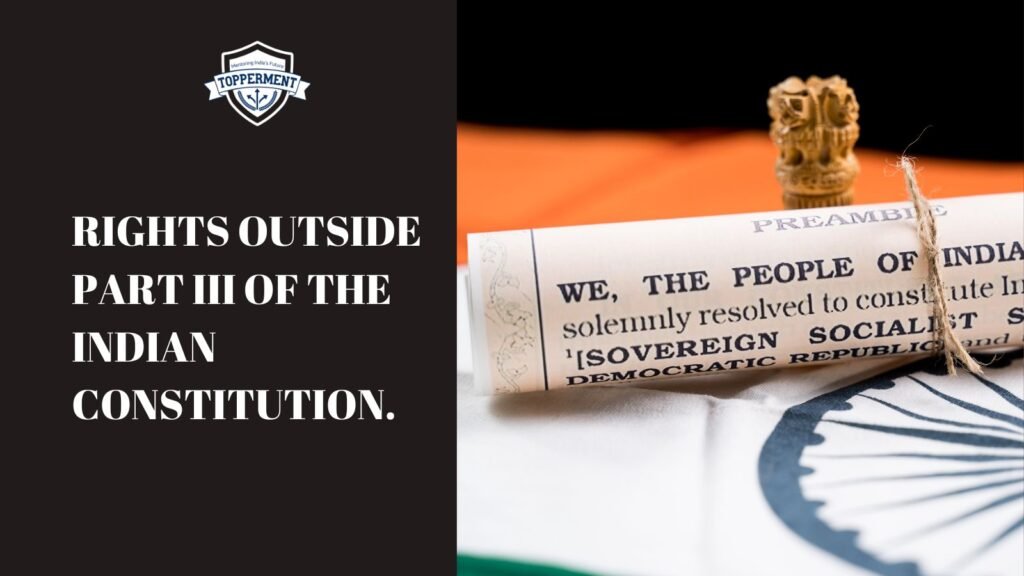The Indian Constitution is a remarkable document that outlines the fundamental rights of its citizens. Part III of the Constitution lists these fundamental rights. However, there are many other rights that are protected outside of Part III. These rights are equally important and are worth exploring.
Right to Education
The Right to Education is a constitutional right in India under Article 21A, which was added by the 86th Amendment in 2002. It makes education a fundamental right for children between the ages of 6 and 14. This right includes free and compulsory education to all children in that age group.
Right to Information
The Right to Information Act of 2005 gives every citizen the right to access information held by public authorities. This includes information on government policies, decisions, and actions. This right helps to promote transparency and accountability in government.
Right to Health
The Constitution of India recognizes the Right to Health as a fundamental right under Article 21, which guarantees the right to life and personal liberty. The government is obligated to provide adequate healthcare facilities to its citizens. In addition, the National Health Policy of 2017 seeks to ensure universal health coverage for all citizens.
Right to Environment
The Right to Environment is not explicitly mentioned in the Indian Constitution. However, it is recognized by the judiciary as a fundamental right under Article 21. The government is obligated to protect and preserve the environment for future generations. In addition, the National Green Tribunal was established in 2010 to adjudicate environmental disputes.
Right to Privacy
The Right to Privacy was recently recognized as a fundamental right by the Supreme Court of India in 2017. It is protected under Article 21 of the Constitution, which guarantees the right to life and personal liberty. This right protects individuals from arbitrary or unlawful intrusions into their personal lives.
There are many rights protected outside of Part III of the Indian Constitution. These rights are equally important and play a crucial role in promoting the well-being of citizens. It is essential to understand and appreciate these rights to build a just and equitable society.
Also Read
- Roles and Functions of IRS Officer | UPSC CSE
- Role of Science and Technology in the developing world | UPSC Science and Technology
Follow Us For More Content On:
https://www.instagram.com/topperment/
Tag:education, Environment, Health, IAS, IFS, India, Indian Constitution, Information, IPS, IRS, Part III, Polity, Privacy, Rights, UPSC


